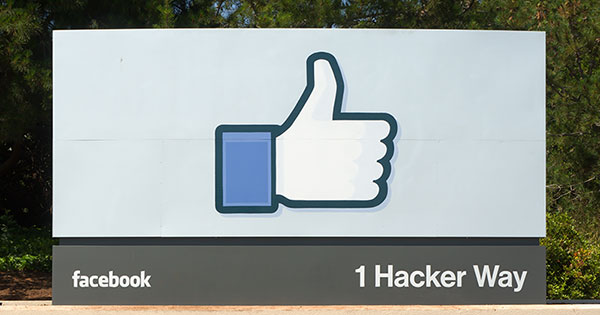The social media industry may have to struggle to rehydrate in light of some surprising and troubling metrics Facebook released on Wednesday. In addition to a pause in user growth, there have been signs that user engagement may have reversed course.
The decline may have something to do with Facebook’s efforts to recover from accusations that it has provided fertile ground for fake news. CEO Mark Zuckerberg last month promised to steer the company toward refocusing on the user experience.
Better User Experience
Zuckerberg stunned the industry during the company’s fourth quarter earnings announcement on Wednesday, saying that while the company remained profitable, recent changes to shift the platform’s focus away from news toward more meaningful interactions with friends and family had resulted in users spending 50 million fewer hours per day on the site.
Daily active users in the U.S. and Canada fell by 700,000 from the third to the fourth quarter, CFO David Wehner noted.
News and video always will be an important part of Facebook, but the company does not want that type of passive viewing to alter the overall experience for the social media user, Zuckerberg said during the conference call.
“Now, as I made clear announcing these changes, I expect the time people spend on Facebook and some measure of engagement will go down as a result, but I also expect the amount we actually interact with each other to go up over time,” he added.
The decision to alter the type of video Facebook focuses on in order to increase interaction led to a reduction overall of about 50 million hours per day, or 5 percent, during the fourth quarter, Zuckerberg said.
Still, the company reported 47 percent revenue growth for the year to US$40 billion, with 1.4 billion daily active users, a 14 percent increase.
The company had been under fire by critics since the 2016 election due to the proliferation of fake news by Russian troll bots, and the seemingly slow response by Zuckerberg in recognizing how problematic this was.
Facebook has made great strides in improving the integrity of the news feed, Zuckerberg maintained, with about 14,000 people working across community and online ops and security — double the amount from a year ago.
New technology to flag suicidal posts has resulted in first responders reaching 100 people in need of help, he noted, and the company’s AI systems resulted in 99 percent of Al Qaeda- or ISIS-related content being taken down before it was even flagged by users.
Long Horizon
Zuckerberg conceded that Facebook was willing to accept some reduction in hours spent on the site in the interest of a better user experience, said Rick Edmonds, media business analyst at Poynter.
“He thinks that will be good for the company in the long run,” he told TechNewsWorld. “As you know, publishers have been seeing reduced traffic even before the recent announcements of paring down the ‘public’ portion of News Feed.”
While it is difficult to pin down exactly what led to the lower engagement numbers,they may be due to the company’s shift away from news and general saturation in the social media marketplace, said Kevin Krewell, principal analyst at Tirias Research.
“With the negative talk around fake news on Facebook and the competition from other social media, it’s not surprising that people are starting to limit their time on Facebook,” he told TechNewsWorld.
Krewell cited President Trump’s favorite platform, Twitter, as an example.
Perhaps the only way Facebook can recover in the long term would be to buy a rival site such as Twitter, he said, adding that Facebook may have reached the limits of its organic growth cycle.
Apps Up
Facebook faces a more fundamental problem than the ones company officials cited, suggested Midia Research analyst Mark Mulligan, in a Thursday post. What he sees looming is an Instagram problem — or more precisely, a messaging app problem.
Messaging apps accounted for 7.7 billion monthly active users in 2017, up from 6.6 billion in 2016 and 5.5 billion a year before that, he pointed out.
Instead of playing defense, Facebook decided to disrupt itself to the point where the company owns 49 percent of the global market share of that space, and 77 percent of Facebook’s total audience now uses at least one global messaging app.
The problem is that nobody has figured out quite how to monetize those apps, which means Facebook will face lower advertising yield as its members increasingly go to them, according to Mulligan.
However,Facebook has been showing an increase in monthly and daily active users, as well as ad revenue, so a drop in usage time is not that worrisome, said Wayne Kurtzman, research director for social and experiential solutions at IDC.
“If users have a better experience, find more value, and engage in more relevant ads, the time-on platform metric will be less significant,” he told TechNewsWorld. “If their experience is noticeably poorer, there is a lot of competition that will try and pick up the traffic.”





















































